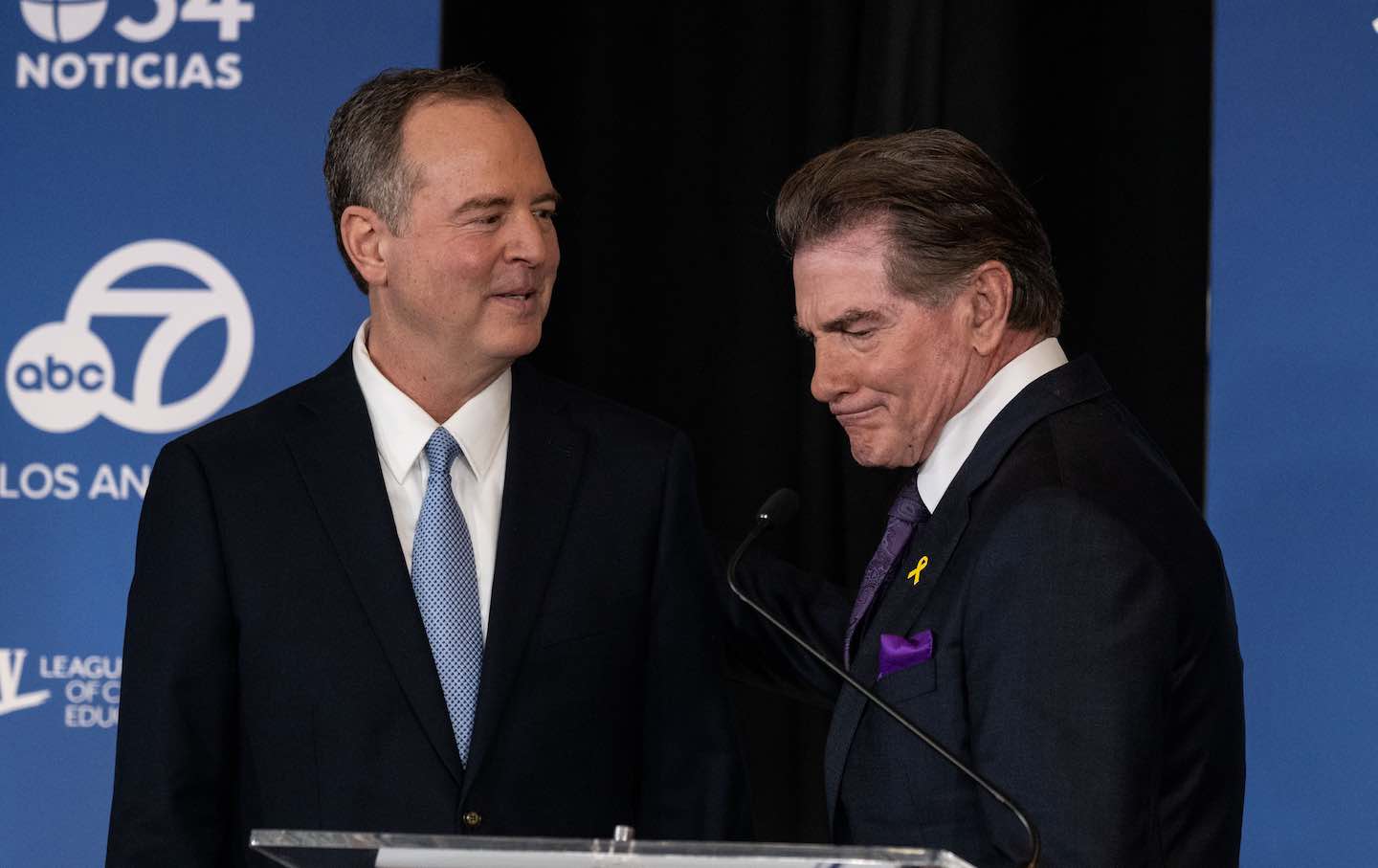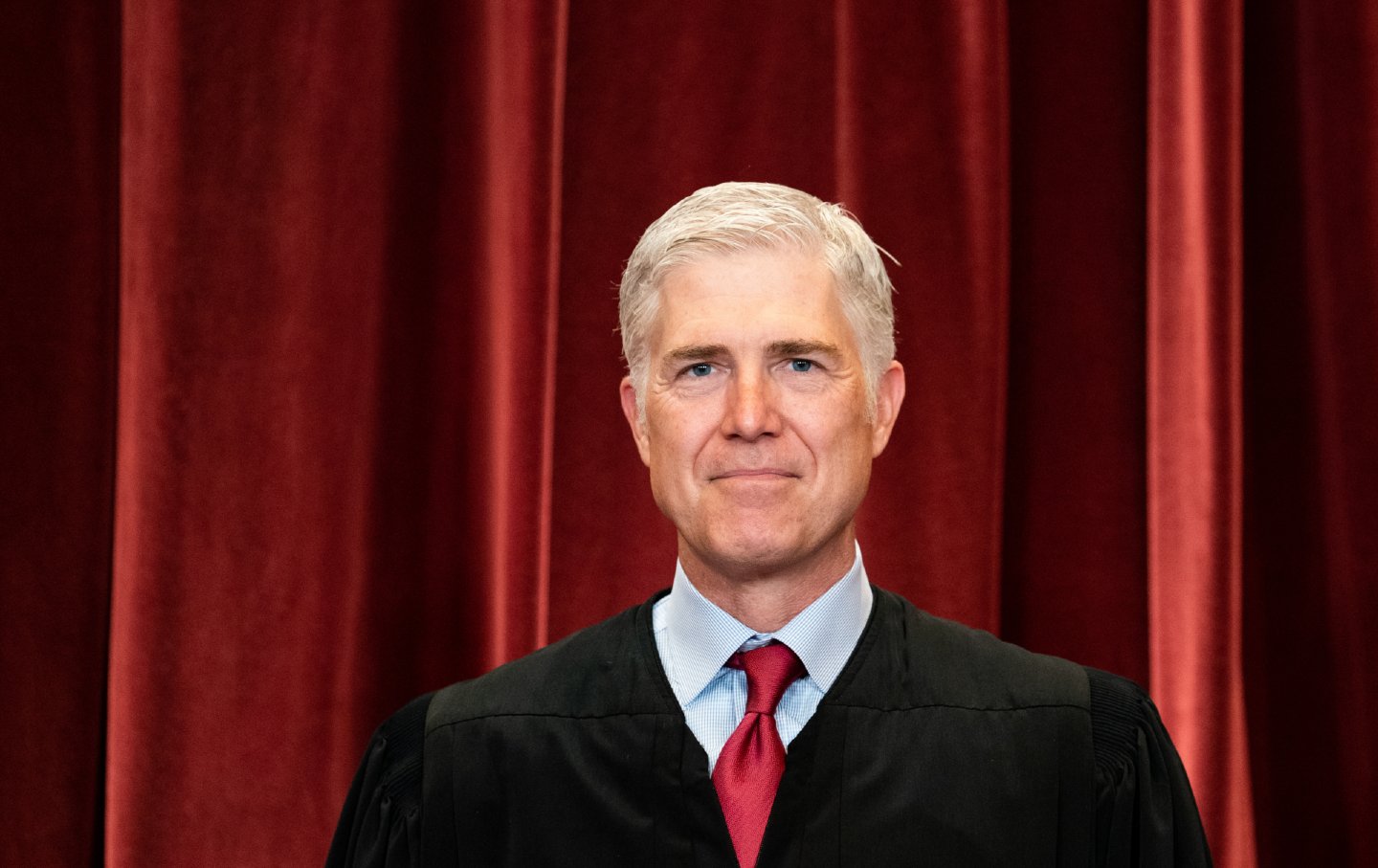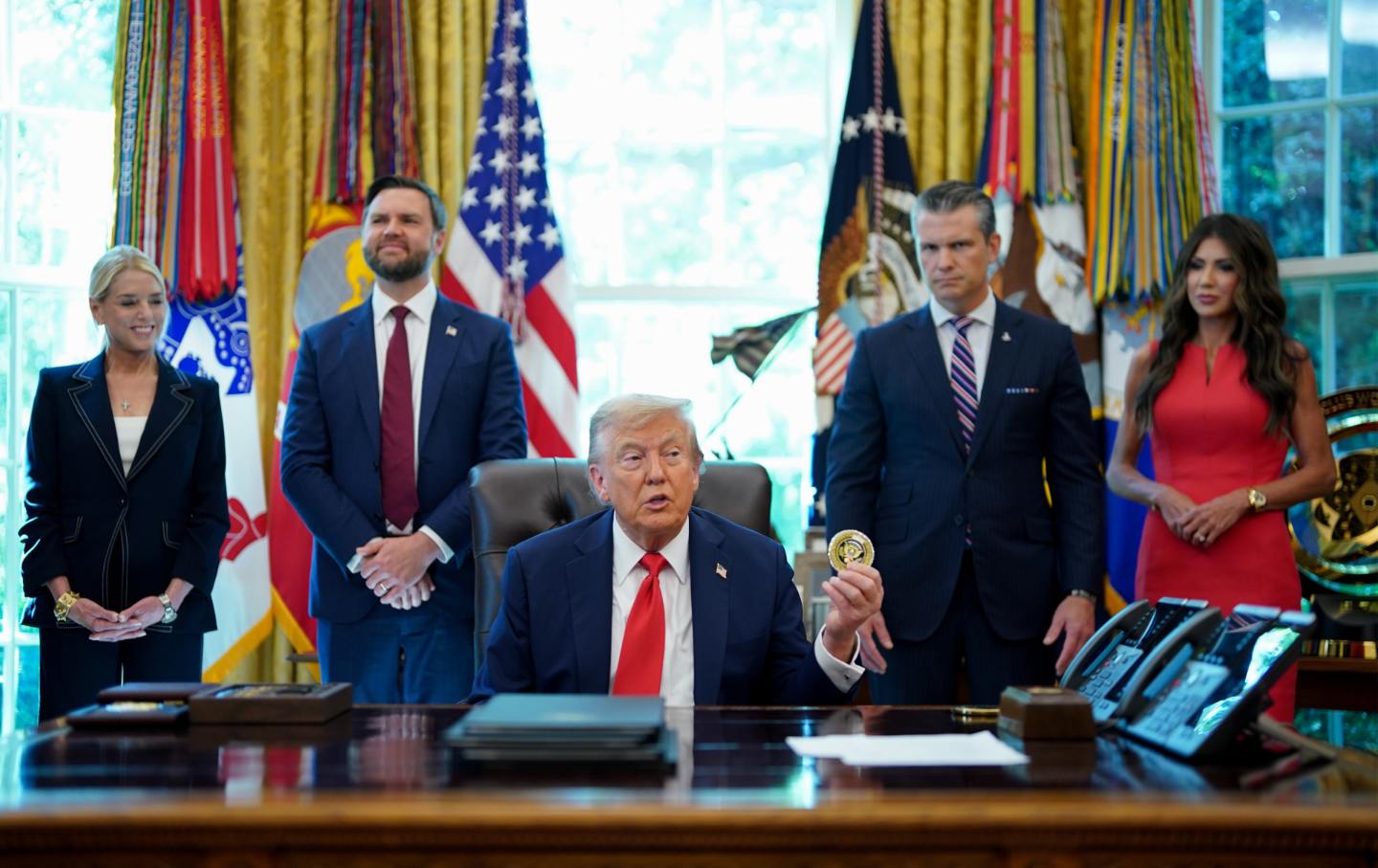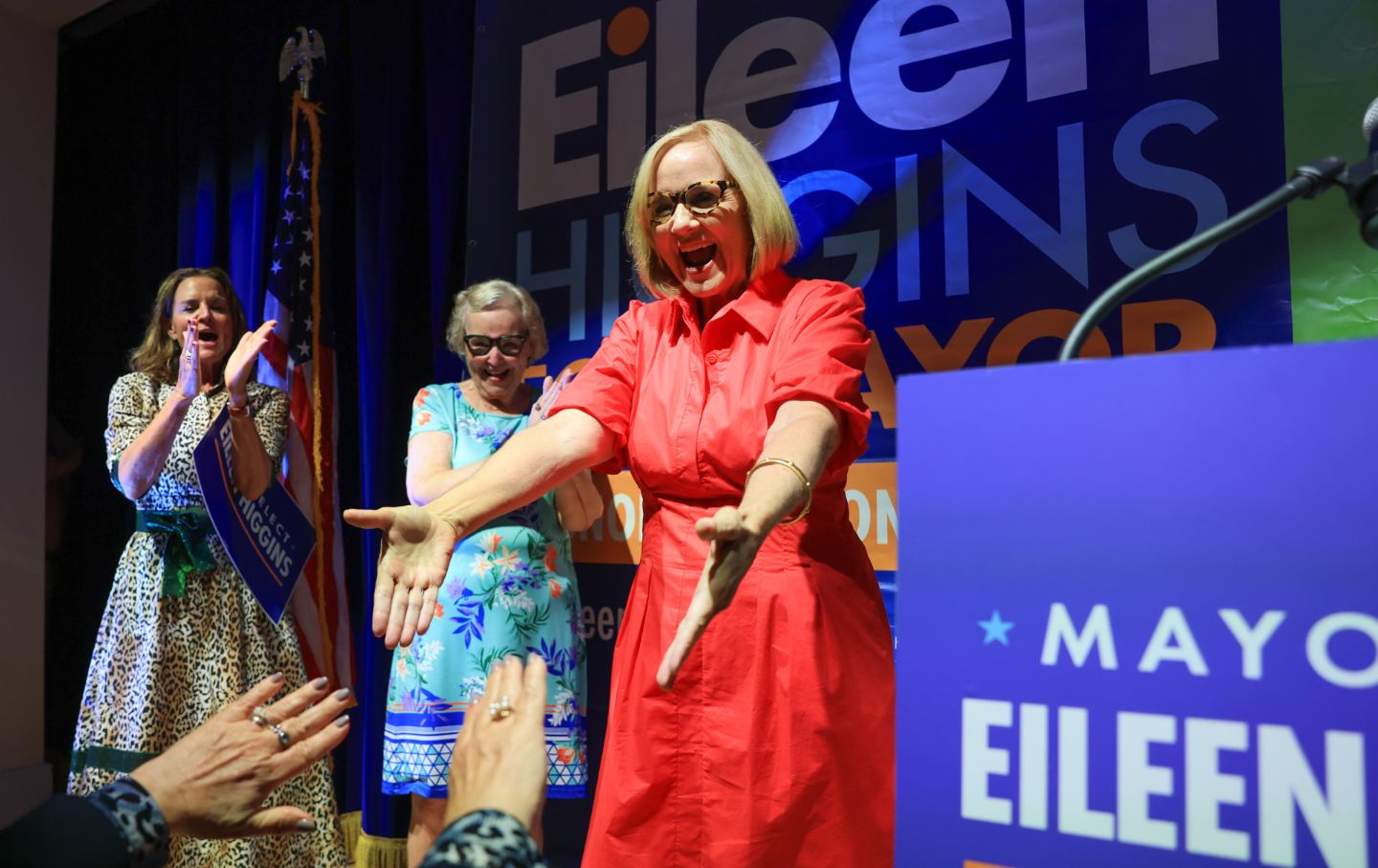Adam Schiff Offers a Crash Course in How to Leave Republican Opponents Speechless
Democrats campaigning in blue and purple states should follow Schiff’s lead in making an issue of the GOP’s Trump cronyism.

Democratic Representative Adam Schiff, left, and Republican Steve Garvey, meet for a live debate hosted by ABC7 on October 8.
(David Crane, Los Angeles Daily News / SCNG)
Adam Schiff is a safe bet to win the open seat representing California in the US Senate—in a race where he is likely to win more votes than any Senate candidate in this year’s high-stakes battle for control of the chamber.
The often controversial Democratic representative from Burbank holds a lead of around 25 points in most surveys over Republican Steve Garvey, a 75-year-old political newcomer who won the GOP nomination primarily because older voters recalled his professional baseball career, which began during President Richard Nixon’s first term.
But Schiff has something to show Democrats who are running in closer contests for Senate seats representing blue and purple states.
When Garvey tried during Tuesday’s California Senate debate to present himself as a mainstream candidate, Schiff wrapped Donald Trump’s record around the Republican.
Schiff dismissed Garvey as a “MAGA mini-me in a baseball uniform.”
That’s a good line of attack—sans the baseball uniform reference—for Democratic candidates, particularly for those running in states where Republicans are more politically viable than California. In this era of deep political division and hyper-partisanship on both sides of the aisle, candidates are often too cautious about how they frame their outreach to the broader electorate. Some of that caution is understandable. But it should not preclude a sharp focus on the lawless Republican presidential nominee.
The mistake that too many Democrats have made in this election cycle is to imagine that edgy criticism of Trump will somehow narrow their appeal to independents and wavering Republicans. That makes no sense in a campaign season where mobilization of the broad anti-Trump base is critical for Democrats.
Democratic presidential nominee Kamala Harris is reaching out to Republicans, as her recent visit to Wisconsin with former House Republican Conference chair Liz Cheney made clear. Yet, as anyone who watched the September debate between the two major-party presidential candidates well understands, Harris is also running hard and smart against Trump. It is hard to think that a substantial number of enthusiastic Trump backers will choose a Democratic candidate for the Senate in their states. Yet Republicans are currently mounting campaigns that imagine they can grab up independent votes, and even some Democratic votes, for GOP Senate candidates in blue and purple states.
This is the sly focus of campaigns for Republican Senate candidates such as former governor Larry Hogan in Maryland, Nella Domenici in New Mexico, Mike Rogers in Michigan, and Eric Hovde in Wisconsin. All of these GOP contenders are making major pushes to attract votes from moderate independents and Democrats.
In his race against Democratic US Senator Tammy Baldwin, Hovde is quoting Democratic presidents such as John F. Kennedy on his website. In his race against Democratic US Representative Elissa Slotkin for an open seat in Michigan, Rogers is pitching himself as a candidate who “will look for every opportunity to be bipartisan” in the Senate. In New Mexico, where she faces Democratic US Senator Martin Heinrich, the Republican is mounting a “Democrats for Domenici” campaign. In his Maryland open-seat contest with Angela Alsobrooks, the Democrat who serves as Prince George’s county executive, the Republican candidate is running a “Democrats for Hogan” campaign, mimicking Harris’s “Country Over Party” slogan, and saying he won’t vote for Trump in November. But the notoriously thin-skinned Trump has endorsed Hogan, saying, “I’d like to see him win. I think he has a good chance to win.… I can just say from my standpoint, I’m about the party, and I’m about the country. And I would like to see him win.”
Why is Trump for Hogan and for other Republicans Senate candidates who have tried, in at least some instances, to distance themselves from the GOP nominee? That’s simple. If Trump wins a second term as president in November, his ability to appoint cabinet members who will implement his Project 2025 agenda, as well as Supreme Court justices and other federal jurists who will protect him from accountability, will be determined by which party controls the Senate. Trump knows that if he has a Republican Senate, and especially if the Republican majority is padded with GOP senators from swing states and blue states, there will be no stopping him.
Similarly, if Harris wins but ends up with a Republican-controlled Senate, her ability to govern will be severely limited.
The stakes are too high for Democrats to pull their punches in blue states and swing states.
Schiff, a former United States Attorney who led the first of two congressional efforts to convict Trump for his many high crimes and misdemeanors, got the calculus right in his debate with Garvey.
The Republican tried to make Schiff’s record as an impeachment manager a liability for the Democrat, griping, “I can’t imagine, Mr. Schiff, how you could get up every morning and have one mission, and that’s to go after Donald Trump.”
“How can you think about one man every day and focus on that when you’ve got millions of people in California to take care of?” asked the Republican. “I think it’s unconscionable.”
But Schiff recognized that voters, be they Democrats or Republicans or independents, want their elected representatives to be willing to hold the powerful to account.
Popular
“swipe left below to view more authors”Swipe →“Mr. Garvey likes that particular attack because that’s what Trump likes to say. It’s his way of telling MAGA viewers out there, ‘Hey, I’m one of you.’ That’s not what Californians are looking for, Mr. Garvey,” said the Democrat. “Mr. Garvey, I stood up to a corrupt president. Yes, I investigated him. I impeached him. I led the trial in the Senate, and he incited a violent attack on the Capitol. And I was there that day, Mr. Garvey. I was there on January 6 as those insurrectionists were breaking down the doors and windows. The fact that you think that’s perfectly OK, that you still want to support the guy who incited that [violence] tells me that you would never take your oath of office as seriously as I do.”
It was a takedown that put everything in perspective.
The debate moderator invited the Republican to respond. But when the camera focused on Garvey, all that viewers saw was a long, awkward silence.
Schiff finally said, “I’ve left him speechless.”
Garvey eventually mumbled a few empty words. But they did nothing to right the course of his sinking ship.
In his takedown, Schiff revealed the reality that the Republican is a partisan who, by Garvey’s own admission, “did vote for Donald Trump three times.” And the Democrat left no doubt about why he has been so outspoken in his opposition to Trump—in the past and in this campaign. “Donald Trump, I think, was a disastrous president,” said Schiff. “I think he has threatened our democracy.”
Disobey authoritarians, support The Nation
Over the past year you’ve read Nation writers like Elie Mystal, Kaveh Akbar, John Nichols, Joan Walsh, Bryce Covert, Dave Zirin, Jeet Heer, Michael T. Klare, Katha Pollitt, Amy Littlefield, Gregg Gonsalves, and Sasha Abramsky take on the Trump family’s corruption, set the record straight about Robert F. Kennedy Jr.’s catastrophic Make America Healthy Again movement, survey the fallout and human cost of the DOGE wrecking ball, anticipate the Supreme Court’s dangerous antidemocratic rulings, and amplify successful tactics of resistance on the streets and in Congress.
We publish these stories because when members of our communities are being abducted, household debt is climbing, and AI data centers are causing water and electricity shortages, we have a duty as journalists to do all we can to inform the public.
In 2026, our aim is to do more than ever before—but we need your support to make that happen.
Through December 31, a generous donor will match all donations up to $75,000. That means that your contribution will be doubled, dollar for dollar. If we hit the full match, we’ll be starting 2026 with $150,000 to invest in the stories that impact real people’s lives—the kinds of stories that billionaire-owned, corporate-backed outlets aren’t covering.
With your support, our team will publish major stories that the president and his allies won’t want you to read. We’ll cover the emerging military-tech industrial complex and matters of war, peace, and surveillance, as well as the affordability crisis, hunger, housing, healthcare, the environment, attacks on reproductive rights, and much more. At the same time, we’ll imagine alternatives to Trumpian rule and uplift efforts to create a better world, here and now.
While your gift has twice the impact, I’m asking you to support The Nation with a donation today. You’ll empower the journalists, editors, and fact-checkers best equipped to hold this authoritarian administration to account.
I hope you won’t miss this moment—donate to The Nation today.
Onward,
Katrina vanden Heuvel
Editor and publisher, The Nation








